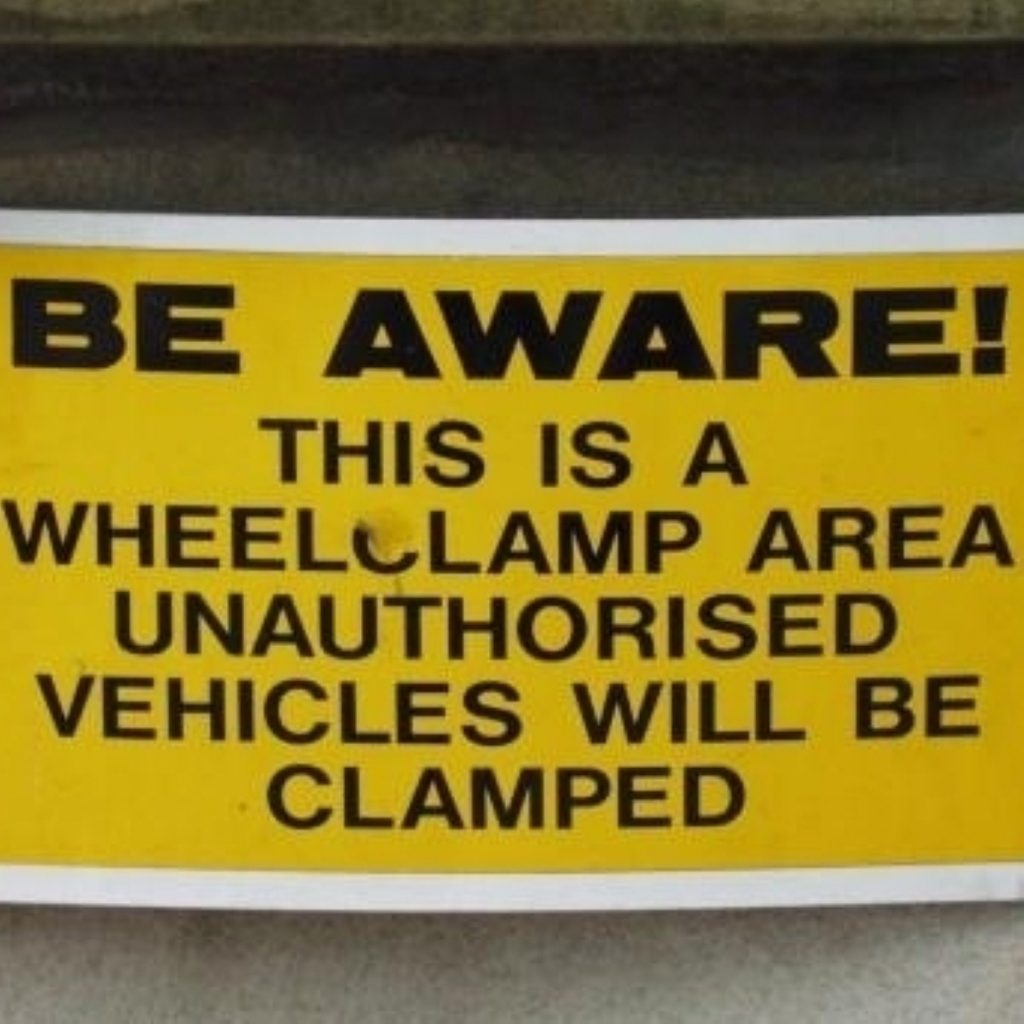Time’s up for rogue wheel clampers
By Laura Miller
Jacqui Smith is set to become a closer friend to drivers today, as she moves to tighten regulations against dodgy wheel clampers.
The practices of rogue clamping firms have become such a problem that the Home Office will now launch a formal consultation at the end of April to consider how best to regulate the industry.
If suggested plans were adopted only licensed wheel clamp companies would be able to operate, according to a strict, enforced code of conduct.
Previously the onus was on the registration of individual clampers.
Drivers have long complained of excessive penalties for releasing their vehicles, hidden or missing signs warning of clamping, unreasonable towing of cars, and no right of appeal for owners.
Nigel Humphries, spokesperson for the Association of British Drivers (ABD), told politics.co.uk he thought the proposals were “absolutely wonderful”.
“There have been cases where these cowboy firms have clamped the cars of pregnant women without the money to pay to get their car released,” he said.
The home secretary said she aimed to address what she called the minority of clamping companies who indulged in unacceptable behaviour including unclear signage and excessive fees.
“We intend to look carefully at how we can introduce a scheme for compulsory licensing of clamping companies and will publish proposals shortly,” she said.
However Mr Humphries believed the plans should go further.
“I don’t think these companies should be allowed to take away people’s cars at all. Immobilising them is one thing, and landowners need recourse to prevent drivers parking on private property, but there needs to be balance,” he said.
He accused the government’s Driver and Vehicle Licensing Agency (DVLA) of selling on drivers’ information to unscrupulous clamping firms, helping them to continue operating.
But David Whitbread, spokesperson for the DVLA, told politics.co.uk that such claims were overblown.
“The DVLA makes no profit in the small fee it charges when passing information to businesses who prove they have reasonable cause in asking for it,” Mr Whitbread said.
He added that usually the DVLA doesn’t need to pass details to clamping agencies.
“If they’ve clamped your car, they already have it, they don’t need your details,” he said.
All wheel clampers are currently required to register with the Security Industry Authority (SIA).
The SIA was asked to undertake a feasibility study of the various options for the regulation of wheel clamping companies in the private sector, including a company registration scheme.
Bernard Herdan, SIA chief executive, admitted some wheel clampers cause problems, but highlighted the sector will always be a target for drivers angry at being clamped.
“Vehicle immobilisation is a sector that faces criticism due to the nature of the work it does and the behaviour of some operatives in the industry,” he argued.
“In response to concerns over practices in the sector we have set out how wheel clampers could be more tightly regulated through a new company licensing scheme.
“Industry and stakeholder participation in the forthcoming formal consultation will be essential. We expect all legitimate firms will welcome this new approach and will be ready to work with us to make this a success.”
The Home Office will launch the consultation on private clamping companies at the end of the month.





-01.png)